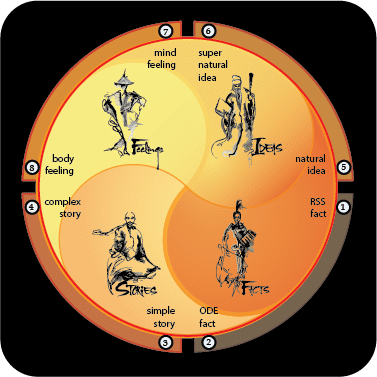Do intelligent people tend to look at complicated problems in simpler ways, or do they just understand complex things in their own right?
Many “intelligent people” would see this seemingly simple question as ironic and difficult to understand. In truth, the question is truly complex. There are so many ways one could define “intelligence.”
Are we talking simple “pattern recognition,” such as that measured by IQ? Are we talking “pragmatic skills,” such as those William James refers to as an idea’s “cash value?” Are we talking the kind of encyclopedic knowledge aspired to by Denis Diderot’s 18th century group? Are we talking about the skills required to do constellated science, wherein a person looks to discover how the logically geometric essences underlying all things are present in all other things?
I, myself, find the search for linearity to be the main reason the average person finds the world so complex (and therefore, often feels so unintelligent).
For instance, most people assume that repeatedly arriving at an identical (linear) outcome proves the truth in a scientific test. On the surface, this does seem to simplify said tests, as well as the nature of our world. But when you then try to use these results to predict individual real world cases, this simplicity falls apart.
This makes linearity the emperor’s new clothes of clarity. It’s also the reason so many truly intelligent people feel insecure in what they know.
Contrast this with how five year olds learn to identify cumulus clouds. And how intelligent these children feel once they have learned to do this. Once learned, a five year old will effortlessly know this thing for the rest of his or her life. This miracle is even more amazing when you consider that no two cumulus clouds will ever be alike; nor will any single cumulus cloud ever be the same twice.
Talk about complexity. And non-linearity.
The secret of course is to look for fractals. Only fractals have the power to simplify real world complexity. To me, knowing this is what makes someone intelligent. No surprise, all young children know and use this knowledge all the time.
This means we were all Einsteins once upon a time; when we were five.
